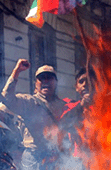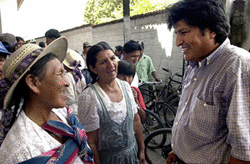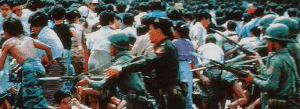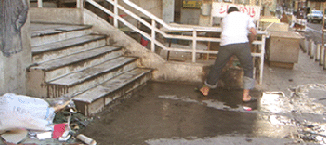
Bolivia’s Trial By Fire
After winning a landslide election victory on December 18th, Bolivian president-elect Evo Morales announced plans to nationalize the country's gas reserves, rewrite the constitution in a popular assembly, redistribute land to poor farmers and change the rules of the U.S.-led war on drugs in Bolivia. If he follows through on such promises, he'll face enormous pressure from the Bush administration, corporations and international lenders. If he chooses a more moderate path, Bolivia's social movements are likely to organize the type of protests and strikes that have ousted two presidents in two years. In the gas-rich Santa Cruz region, business elites are working toward seceding from the country to privatize the gas reserves. Meanwhile, U.S. troops stationed in neighboring Paraguay may be poised to intervene if the Andean country sways too far from Washington's interests. For Bolivian social movements and the government, 2006 will be a trial by fire.





